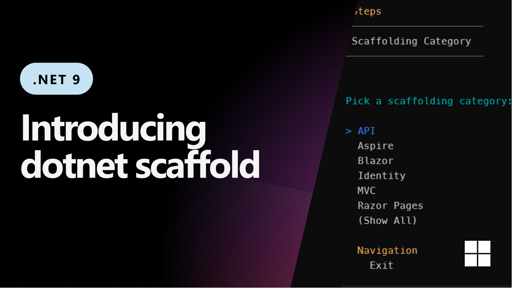- 30 Posts
- 441 Comments

 2·18 hours ago
2·18 hours agoDoesn’t help that it’s a multi-page document…
Persistent domain entity, Proto-persistent domain entity, View model, ,
What the heck… Yeah, I wouldn’t want to use that either. While it may be a formalization, it seems like it would significantly increase complexity and overhead. That can’t be worth it unless it’s a huge enterprise system that has to work with generalized object types across teams or something.
I hadn’t heard of Restful Objects before.

 1·18 hours ago
1·18 hours agoI didn’t quite follow.
They’re using htmx, make errors, and learning something new about using it?
That’s like using any new tech though, right? Or - depending on the devs - happens even with established tech.
I’ve never seen htmx in production. I find it interesting though and want to explore using it. That won’t be at work though. :)

 1·19 hours ago
1·19 hours agoI found the dropping of actions quite surprising as well. I would suspect we could return the links with a disabled attribute? If they should be displayed but not accessible/triggerable.

 1·19 hours ago
1·19 hours agoWe could have called them HTTP APIs.

 1·19 hours ago
1·19 hours agoThey’re not demanding anything. They’re describing how the current meaning of REST is nothing like the original one.
They’re making a point for not splitting application state and logic into client and server with shared knowledge. If you’re making that a pretext of course their argumentation won’t fit. They’re describing an alternative architecture and approach. Not an alternative protocol for the current common web application architectures.

 1·19 hours ago
1·19 hours agoNo, it doesn’t mean only humans can interact with it.
The key point [of classical REST] is that responses are self-contained self-describing. Requesting a resource response tells you what actions you can take on it. There is no need for application domain knowledge, implicitly or separately-explicitly shared knowledge.
Some HTTP web apis offer links in their JSON responses for example. Like previous and next page/ref on paging/sectioning/cursor. Or links to other resources. I don’t think I’ve ever seen possible resource actions/operations be included though. Which is what the original REST would demand.
That’s how I understood it anyway.
Their suggestion of using HTML rather than JSON is mainly driven by their htmx approach, which the project and website is about. Throughout this article though, they always leave open which data form is actually used. In your quoted text they say “for example”. In a later example, they show how JSON with hyperlinks could look like. (But then you need knowledge about that generalized meta structure.)

 2·1 day ago
2·1 day agoLink doesn’t load for me
This post has no link. It’s a text post.

 3·1 day ago
3·1 day agoI interpreted it as a wording issue on the “without downloading them” referring to you work locally - which matches “(client side)” as well.

 5·2 days ago
5·2 days agowithout downloading them (client side)
if they’re client side they must be downloaded

 6·2 days ago
6·2 days agoPresentation/Lecture; bad software quality due to software stack complexity with increased separation of layers and participants
SoC (System on a Chip) hardware for embedded/smaller use cases is very common and successful.
Suggests “Direct Coding” with direct hardware access as a possible alternative approach to PC hardware interfacing. Implementing that is more about commitment than difficulty. Depends more on hardware producers than software developers. A lack of drivers could give a fairer playing field between manufacturers.

 41·2 days ago
41·2 days agoGerman pro basketball team relegated to lower division due to Windows update
lol
Seems like a Ruby issue and suggested improvement? Using keyword arguments does feel like introducing a type of typing.
In C# I use records for simple, naturally behaving types, I can define explicit and implicit cast operators, so I have to choice between requiring explicit casts or not (because they make sense to require or are not necessary). I can use
varto define a variable without specifying a type, and it is deducted from what it gets assigned - but is still that specific type and gives me type safety.In Rust, as far as I understand anyway, traits define shared behavior. In Go interface implementations are implicit rather than explicit. With these, there’s even less of a need of elaborate explicit typing like the post argues/gives an example of.
In general, I’ve never had considerable effort or annoyance implementing or using typing. And I know what it’s good for; explicitness, and in consequence, predictability, certainty, increased maintainability, and reduced issues and confusions. If following references or refactoring becomes unpredictable or high effort, it’d be quite annoying.
When I’m coding JavaScript adding JSDoc so the typing information gets passed along is quite cumbersome. Without it, the IDE does not give intellisense/auto-completion or argument type matching. JavaScript is better with it, I consider it worth it with IDE support, but it is quite cumbersome. (I try to evade TypeScript compiler/tooling overhead.)
A programming language can offer extensive auto-deduction while using strong typing. With appropriate conversions in place, it will only report conflicts and where it was intended to.
I’m thinking of where I enjoyed dynamic natures, which I certainly have. But I don’t think that’s a matter of typing. It’s a matter of programming language interfacing to typing. If in PHP or JS I make a change, hit F5, and get an error, that’s not any better than the IDE already showing it beforehand. And for the most part, I can program the same way with or without typing.
Man, this became a long text.

 29·4 days ago
29·4 days agoI’m just glad we didn’t end up with this one (seen in the ticket)


 23·4 days ago
23·4 days agoDamn, sad story behind the color

 15·4 days ago
15·4 days agoI had never heard of opkg. I looked it up:
opkg: Fork of ipkg lightweight package management intended for use on embedded Linux devices;
ipkg: A dpkg-inspired, very lightweight system targeted at storage-constrained Linux systems such as embedded devices and handheld computers. Used on HP’s webOS;
Wikipedia has no dedicated pages for either of them. I guess they’re quite niche.

 0·4 days ago
0·4 days agodeleted by creator

 3·4 days ago
3·4 days agoI’ve used it at work. But the manual management/maintenance of a commit list makes it practically infeasible. I’ve use it for bit cleanup commits, but not since. When blaming, the previous revision is just one click away anyway. The maintenance doesn’t seem worth the effort.
I guess a commit message tag and script that generates it automatically could make it viable. But I’ve not found the need to yet.

 9·5 days ago
9·5 days agoI looked into the document and man, that’s a lot of points.
Skimming it, it’s all very vague and does acknowledge states autonomy over what they consider legal or not. But there is so much in it, and the general broad and cooperative and sharing nature of it certainly warrants skepticism and concern - especially with how different cooperating states can be, and how such a push may have unintended side effects.

 1·5 days ago
1·5 days agoWho are these people you portray? Do they even exist?
The China equivalence is so far off. The surveillance systems, the press coverage, the open criticism, and the pretext/goals are all very different between China and this.



















I’m surprised you didn’t mention MSBuild. dotnet runs MSBuild, and MSBuild is task-oriented (or target-oriented? or target-task-oriented?).
I take editing via MSBuild would cover the same things, but Cake allows doing so without having to use/learn MSBuild?